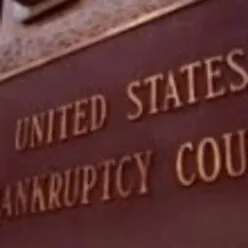Filing for bankruptcy can be a difficult decision to make, but it can also be a great way to get a fresh start financially. Knowing what to expect and understanding the process can help make the process easier.
Table of Contents
Introduction
Here, we provide an overview of the basics of filing for bankruptcy, including what you need to know before filing, the different types of bankruptcy, and the potential benefits and drawbacks of filing. With this information, you can make an informed decision about whether bankruptcy is the right choice for you.Question 1: What is Bankruptcy?
Answer: Bankruptcy is a legal process that allows individuals and businesses to eliminate or repay some or all of their debts under the protection of the federal bankruptcy court.
Question 2: What Types of Bankruptcy Are Available?
Answer: The two most common types of bankruptcy are Chapter 7 and Chapter 13. Chapter 7 is a liquidation bankruptcy, which eliminates most of your debts. Chapter 13 is a reorganization bankruptcy, which allows you to repay your debts over a period of time.
Question 3: What Are the Benefits of Filing for Bankruptcy?
Answer: Filing for bankruptcy can provide relief from overwhelming debt and help you get a fresh start. It can stop creditors from harassing you, prevent foreclosure, and allow you to keep certain assets.
Question 4: What Are the Disadvantages of Filing for Bankruptcy?
Answer: Filing for bankruptcy can have a negative impact on your credit score and may make it difficult to get credit in the future. It can also be expensive and time-consuming.
Question 5: What Is the Bankruptcy Process?
Answer: The bankruptcy process begins with filing a petition with the bankruptcy court. After the petition is filed, creditors are notified and a meeting of creditors is held. After the meeting, the court will issue a discharge order, which eliminates certain debts.
Question 6: What Documents Do I Need to File for Bankruptcy?
Answer: You will need to provide the court with a list of your assets and liabilities, income and expenses, and a list of your creditors. You will also need to provide proof of your identity and proof of residence.
Question 7: How Much Does It Cost to File for Bankruptcy?
Answer: The cost of filing for bankruptcy varies depending on the type of bankruptcy you are filing and the complexity of your case. Generally, the cost ranges from $500 to $2,000.
Question 8: How Long Does It Take to File for Bankruptcy?
Answer: The length of time it takes to file for bankruptcy depends on the type of bankruptcy you are filing and the complexity of your case. Generally, it takes between three and six months to complete the process.
Question 9: What Is the Automatic Stay?
Answer: The automatic stay is a court order that stops creditors from taking any action against you while your bankruptcy case is pending. This includes stopping collection calls, lawsuits, and foreclosure proceedings.
Question 10: What Debts Are Not Discharged in Bankruptcy?
Answer: Certain types of debts are not discharged in bankruptcy, including student loans, child support, alimony, and certain taxes. Additionally, certain types of debts may be discharged in Chapter 13 but not in Chapter 7.
Question 11: What Is a Bankruptcy Trustee?
Answer: A bankruptcy trustee is a court-appointed individual who is responsible for administering your bankruptcy case. The trustee reviews your petition, collects payments from you, and distributes payments to your creditors.
Question 12: Do I Need an Attorney to File for Bankruptcy?
Answer: It is not required to have an attorney to file for bankruptcy, but it is highly recommended. An experienced bankruptcy attorney can help you understand the process and ensure that your rights are protected.
Question 13: What Happens After I File for Bankruptcy?
Answer: After you file for bankruptcy, the court will issue a discharge order, which eliminates certain debts. You will also be required to attend credit counseling and complete a financial management course.
Question 14: How Long Does Bankruptcy Stay on My Credit Report?
Answer: Bankruptcy will remain on your credit report for up to 10 years. However, it is possible to rebuild your credit after filing for bankruptcy.
Question 15: Is Bankruptcy the Right Choice for Me?
Answer: Bankruptcy is a serious decision and should not be taken lightly. It is important to consider all of your options and consult with an experienced bankruptcy attorney before making a decision.
Conclusion
Filing for bankruptcy can be a difficult decision to make, but it can also be the best option for getting your finances back on track. Knowing what to expect and understanding the process can help you make the right decision for your situation. With the right information and guidance, filing for bankruptcy can be a positive step forward in rebuilding your financial future.
